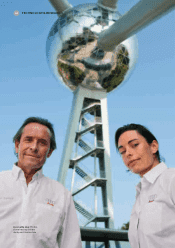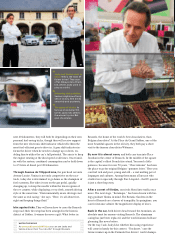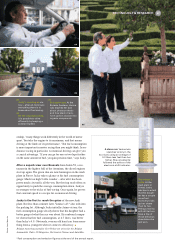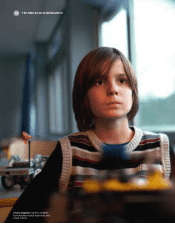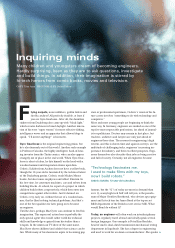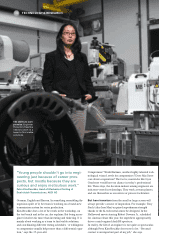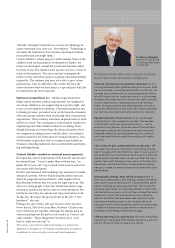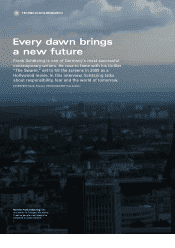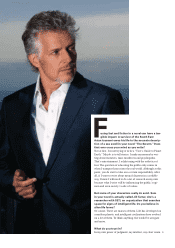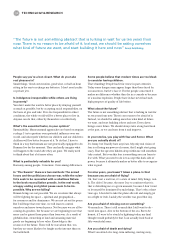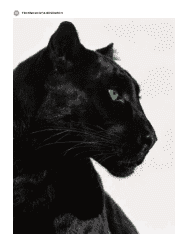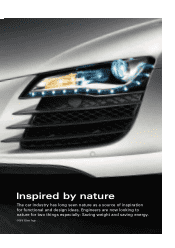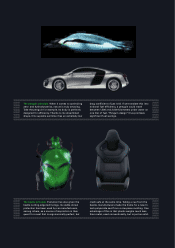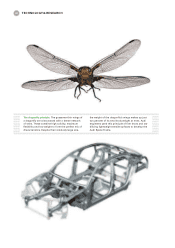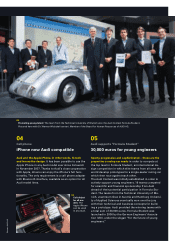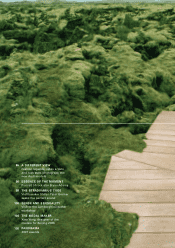Audi 2007 Annual Report Download - page 76
Download and view the complete annual report
Please find page 76 of the 2007 Audi annual report below. You can navigate through the pages in the report by either clicking on the pages listed below, or by using the keyword search tool below to find specific information within the annual report.
Some people believe that modern times are too bleak
to consider having children.
That’s humbug! People had it far worse in past centuries.
Today some dangers may appear larger than those faced by
our ancestors, but let’s face it: For the people concerned it
makes no difference whether they die in a crusade or because
of a nuclear explosion. People have in fact never had such
high prospects of quality of life before.
What about the future?
The future is not something abstract that is lurking in wait for
us ten years from now. There is no reason to be afraid of it.
Instead, we should be asking ourselves what kind of future
we want, and start building it here and now. Every dawn
brings a new future. We should always take a long hard look
at the past, so we can learn from it and improve.
In your stories, you play with fear and horror. What
are you actually afraid of?
It’s funny, but I hardly have any fears. My only real vision of
fear is of losing my powers of reason, that I might start going
crazy. That the specters hidden deep within me will somehow
take control. But even this fear is something you can learn to
live with. What you need to do is to accept this dark side of
power, because it ultimately makes us better able to recognize
what is good.
For nine years, you haven’t taken a plane. Is that
because you are afraid of flying?
Oh, that’s not a real fear, it’s a state of mind. Silly things, real-
ly. The older I become, the more I try to confront what it is
that is disturbing me at a given moment, because I don’t want
to let myself be dominated by such things. That’s why a short
time ago, I decided to take the plane after all and simply got
on a flight to Oslo. Luckily the weather was good that day.
Are you afraid of missing out on something?
Very much so. There’s still so much that I still want to do –
travel into space, dive to the bottom of the sea. But to be
honest, if I were to be struck by lightning today, my final
thought would probably be that I can actually look back at
fifty wonderful years.
Are you afraid of death and dying?
What I am afraid of is long-term suffering, wasting away,
74 TECHNOLOGY& RESEARCH
People say you’re a bon vivant. What do you take
real pleasure in?
Small things. Good conversation, good wine, or half an hour
sitting in the sun to recharge my batteries. I don’t need yachts
or private jets.
Is indulgence irresponsible while others are living
in poverty?
You don’t make the world a better place by denying yourself
as much as possible, but by accepting social responsibility, on
the basis of give and take: If we feel responsible for others’
conditions, the whole world will be a better place to live in.
Anyone can do that, either by themselves or collectively.
What’s the essential factor, in your opinion?
Sustainability. Many unsound approaches are based on utopian
ecology. I try to question every potential influence over our
world, and ask myself whether our children and our children’s
children will live better because of it. To do that, I have to
think in a way that humans are not genetically equipped to do:
Humans live for the moment. They can hardly imagine what
will happen to the world after they are gone. We really need
to think about that a bit more often.
What is particularly valuable for you?
Harmony among people. Consensus. Overcoming differences.
In “The Swarm” there are two methods: The armed
forces and the politicians choose war, while the scien-
tists seek to be reconciled with a rebellious Nature.
In the book reconciliation prevails. In the real world,
a happy ending and global peace seem to be im-
possible. Why are we failing?
Human beings are not peaceful. We are creatures that always
will be fighting for space – spiritual and geographical –
for resources and for dominance. We are not cut out for peace.
But I still hope that over time, we will learn to control
ourselves and move towards peace. Not because we are all be-
coming do-gooders, but because we are beginning to see that
more can be gained from peace than from war. As a result of
globalization, ownership of land and amassing material
goods are beginning to lose value. Knowledge is the
resource of the future. There will be wars about that, too,
but they are more likely to be fought on the internet than on
the battlefield.
“The future is not something abstract that is lurking in wait for us ten years from
now. There is no reason to be afraid of it. Instead, we should be asking ourselves
what kind of future we want, and start building it here and now.“ Frank Schätzing


